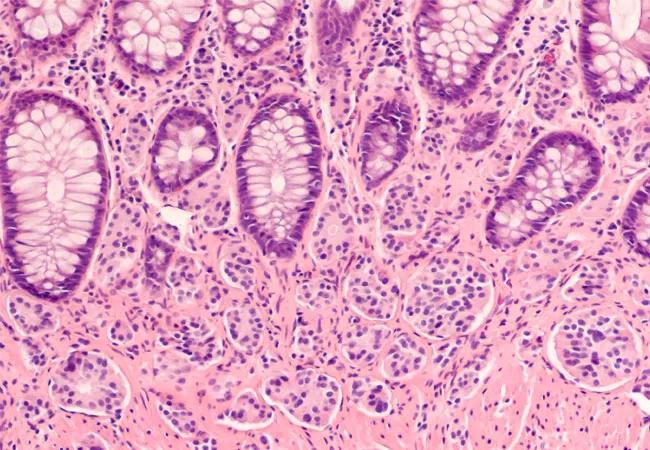Harnessing expertise and advanced technology to treat complex tumor types

For the past two years, Eren Berber, MD, has worked with a team of multidisciplinary physicians to formalize Cleveland Clinic’s Adrenal and Neuroendocrine Tumor Center. Because of the complexity of neuroendocrine tumors (NET), patients with these tumors may require care from a variety of specialists as the disease progresses. The Center helps coordinate these different services, develop clinical programs, advance research and incorporate the latest technology into care.
Advertisement
Cleveland Clinic is a non-profit academic medical center. Advertising on our site helps support our mission. We do not endorse non-Cleveland Clinic products or services. Policy
“Neuroendocrine tumors originate from neuroendocrine cells in the body, and these cells are different from most regular cancer cells,” says Dr. Berber, Professor of Surgery at Cleveland Clinic as well as Director of Robotic Endocrine Surgery, Surgical Liver Tumor Ablation and Co-Director of the Liver Tumor Ablation Program. “Although these cells are not as aggressive as other cancer cells, they need to be treated like cancer cells. NET patients have chronic disease, and they require multidisciplinary care, lifelong monitoring and intermittent treatment.”
Neuroendocrine tumors originate in the bowel, small or large intestines, pancreas, appendix, lungs or stomach. Patients with these tumors often present with a hormonal symptom, such as flushing of the face, diarrhea, respiratory problems or heart problems; treatment typically requires experts in many specialties. Physicians involved with the Center include specialists in endocrine surgery, oncology, radiology, cardiology, interventional radiology, general surgery, transplant, genetics and genomic medicine. When patients come to the Center, they will consult with a surgeon, an oncologist, a dietitian and others, all in a connected fashion.
“These patients require an endocrine expert to understand their hormonal physiology,” explains Dr. Berber. “They will need an oncologist to work them up and stage them for their tumors. They may also need unique drugs for their symptoms, such as somatostatin analogs, which work against the hormones that they produce and can alleviate symptoms. It is also likely that NET patients will need a surgeon to remove their tumors.”
Advertisement
One of the more unique aspects of this Center is its devotion to cutting-edge technology. “Cleveland Clinic has always had a very advanced multidisciplinary program,” says Dr. Berber. “There’s a lot of new technology for the diagnosis of these patients, such as DOTATATE PET imaging, for surgical treatments, such as robotic surgery, advanced liver tumor ablation technologies and new intraoperative imaging modalities with indocyanine green and for the oncologic treatment, such as peptide receptor radionuclide therapy.
Dr. Berber emphasizes two new technologies that have revolutionized the care of these patients:
“The Center also has a multidisciplinary tumor board that meets every month,” says Dr. Berber. “The physicians are now much more connected. We talk to each other frequently to cover all clinical and research programs related to NET.”
Advertisement
Advertisement

Pheochromocytoma case underscores the value in considering atypical presentations

Advocacy group underscores need for multidisciplinary expertise

A reconcilable divorce

A review of the latest evidence about purported side effects

High-volume surgery center can make a difference

Advancements in equipment and technology drive the use of HCL therapy for pregnant women with T1D

Patients spent less time in the hospital and no tumors were missed

A new study shows that an AI-enabled bundled system of sensors and coaching reduced A1C with fewer medications